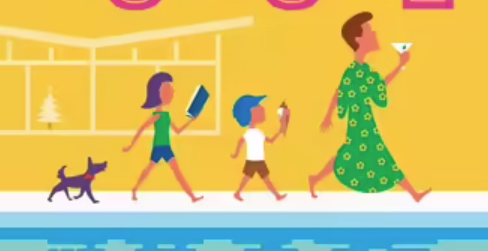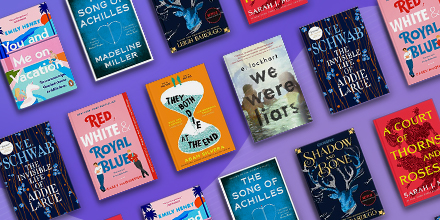Debra Adelaide
author of The Women’s Pages
Six Sharp Questions
____________
1. Congratulations, you have a new book. What is it about and what does it mean to you?
My novel The Women’s Pages is based on a short story of mine that introduced two characters in a multilayered story about loss, silences, relationships between mothers and daughters, and above all about the power of the written word.
It’s based loosely on Wuthering Heights, which presents numerous themes big and small, but particularly for me is very much about storytelling, given the novel’s many intriguing narrative layers. I’ve not rewritten that extraordinary novel by any means, but simply responded to its elements and especially leapt into some of its most compelling imagined spaces, such as the unspoken, untold, age-old story of the mother and daughter dynamic. Wuthering Heights features only absent, silent, missing, dead or dying mothers: The Women’s Pages is partly about finding or restoring mothers to a narrative.
2. Time passes. Things change. What are the best and worst moments that you have experienced in the past year or so?
In the past year I have had two books published and as a writer with a full time job (at a university) I can’t hope for better than that. My last book was the collection The Simple Act of Reading, which was done in collaboration and for the Sydney Story Factory. Being able to present essays by authors on the topic of what reading means to them, and with the support of organisations like CA’s cultural fund and Random House publishers, all for the cause of fostering reading and writing in children, was a total pleasure and privilege. It’s been a very satisfying moment of my w riting life in every way.
riting life in every way.
Having a novel come next, especially one that’s so much about the act of reading – I must have a bit of a theme or obsession here! – only consolidates this pleasure. The day your publisher rings and says she loves your manuscript, the one you wrote in desperation, for yourself alone, and wants to publish it, is a unique joy, one you cherish forever.
The worst moments in recent times have involved the serious illness of two friends and the terrible swift death of one and the ongoing illness of one of my closest family members: not being able to help or heal someone you love is just devastating. But on that note, love always offers the very best moments, and I am blessed with an abundance of that in my life.
3. Do you have a favourite quote or passage you would be happy to share with us? It doesn’t need to be deep but it would be great if it meant something to you.
My home email address signature includes this quotation from Gustave Flaubert’s Madame Bovary: ‘Human language is like a cracked kettledrum on which we beat out tunes for bears to dance to, when what we long to do is make music that will move the stars to pity.’
I love this quotation because it reminds me almost every day what my job as a writer is, and how big the challenge is, that is, to take language that is tired and worn out, or lowly, cliched and undistinguished in every way, and turn it into something moving and beautiful and uniquely mine. I don’t achieve this all the time of course, but at least I am reminded to aspire to it.
4. Writers have often been described as being difficult to live with. Do you conform to the stereotype or defy it? Please tell us a little about the day to day of your writing life.
My writing life itself is messy, ad hoc, organic and irregular in every way. However once I am engaged in a writing project, a story, or a novel, once I am ‘in the zone’ I become very disciplined and write to a schedule that I set myself (and deadlines that I always meet).
Despite this I think I am supremely easy to live with! At least, I still do the household tasks and meet my family obligations and certainly never disappear into my study with bottles of whisky or boxes of chocolate biscuits, muttering or ranting when I do emerge. However I know I become distracted when I’m in the zone, and am really thinking deeply only about the work, so perhaps those I live with would differ on this.
5. Some writers claim not to be influenced by the needs of the marketplace, while others seem obsessed by it. Would you please describe how the marketplace affects your writing (come on, tell the truth!).
The only time I have tried to think about and respond to the marketplace the writing has failed. The marketplace is a terrible distraction: if I were a genre writer, say of crime or speculative fiction, this probably wouldn’t be the case. But for me I have learned I cannot hope to second guess the market or my readers. I write for myself first: everything I write I have assumed no one else in the world would want to read (but of course at the same time have secretly hoped that millions would). 
When I completed my last novel, The Household Guide to Dying, I gave the manuscript to my agent and without a trace of irony told her that if she didn’t like it I would just go away and bury it because I had another novel underway. Perhaps I am always preparing myself for rejection: that might imply some bleakness in my background, but in fact I think this is healthy for a writer. You need rejection, and you need failure, so confronting it yourself right from the start is helpful.
The market is far too protean and slippery to grasp with confidence: it can make you unconsciously censor the work, or stop you from concentrating on what the story might need.
6. Unlikely Scenario: You’ve been charged with civilising twenty ill-educated adolescents but you may take only five books with you. What do you take and why?
Wuthering Heights, of course: this is a no-brainer given the context of my new book, but also because it is one of those novels that can bear endless re-readings, and one that for all its mysteries and even frustrations, has the capacity to speak across the generations. And then the characters are so bold and wild and wilful and out there, which I imagine might strike a chord. And finally because it can and should be read aloud, so I imagine sitting down reading this novel to commence the civilising process with some sense of community and even ritual.
The Little Prin ce, because it is exquisitely beautiful and wise and clever and delightful, and would remind adolescents, who are always pretending to be so much more grown up than they are, of the importance of child-like wonder and imagination.
ce, because it is exquisitely beautiful and wise and clever and delightful, and would remind adolescents, who are always pretending to be so much more grown up than they are, of the importance of child-like wonder and imagination.
If the entire Lord of the Rings trilogy is cheating (three novels) then definitely The Hobbit, mainly because I loved it when I was a child but have loved it and re-read it forever since; but also because it was a real breakthrough for so-called children’s literature, coming from that vast and intricate and complete fantasy world that Tolkien created.
Thea Astley’s A Descant for Gossips, which I have recently re-read, because it demonstrates the terrible consequences of prejudice and alienation in the way a vulnerable schoolgirl is picked on and ostracised. I think it would touch these readers in sensitive emotional spots. And because readers always learn a new word or two reading an Astley novel.
Definitely cheating, but The Complete Works of William Shakespeare, which of course would be read aloud and performed with plenty of roles for the 20 adolescents; it would be marvellously civilising in every way. And they would also learn many new words.
Debra, thank you for playing!
Grab your copy of The Women’s Pages here!
The Women’s Pages
Debra Adelaide
 Ellis, an ordinary suburban young woman of the 1960s, is troubled by secrets and gaps in her past that become more puzzling as her creator, Dove, writes her story fifty years later. Having read Wuthering Heights to her dying mother, Dove finds she cannot shake off the influence of that singular novel: it has infected her like a disease. Instead of returning to her normal life she follows the story it has inspired to discover more about Ellis, who has emerged from the pages of fiction herself – or has she? – to become a modern successful career woman.
Ellis, an ordinary suburban young woman of the 1960s, is troubled by secrets and gaps in her past that become more puzzling as her creator, Dove, writes her story fifty years later. Having read Wuthering Heights to her dying mother, Dove finds she cannot shake off the influence of that singular novel: it has infected her like a disease. Instead of returning to her normal life she follows the story it has inspired to discover more about Ellis, who has emerged from the pages of fiction herself – or has she? – to become a modern successful career woman.
The Women’s Pages is about the choices and compromises women must make, their griefs and losses, and their need to fill in the absent spaces where other women … Read More.
Grab your copy of The Women’s Pages here!
About the Contributor
Anastasia Hadjidemetri
Anastasia Hadjidemetri is the former editor of The Booktopian and star of Booktopia's weekly YouTube show, Booked with Anastasia. A big reader and lover of books, Anastasia relishes the opportunity to bring you all the latest news from the world of books.






 Ten Terrifying Questions with Steven Rowley!
Ten Terrifying Questions with Steven Rowley!  Ten Terrifying Questions with Paul Daley!
Ten Terrifying Questions with Paul Daley!  Here’s everything trending on BookTok right now!
Here’s everything trending on BookTok right now!
Comments
No comments